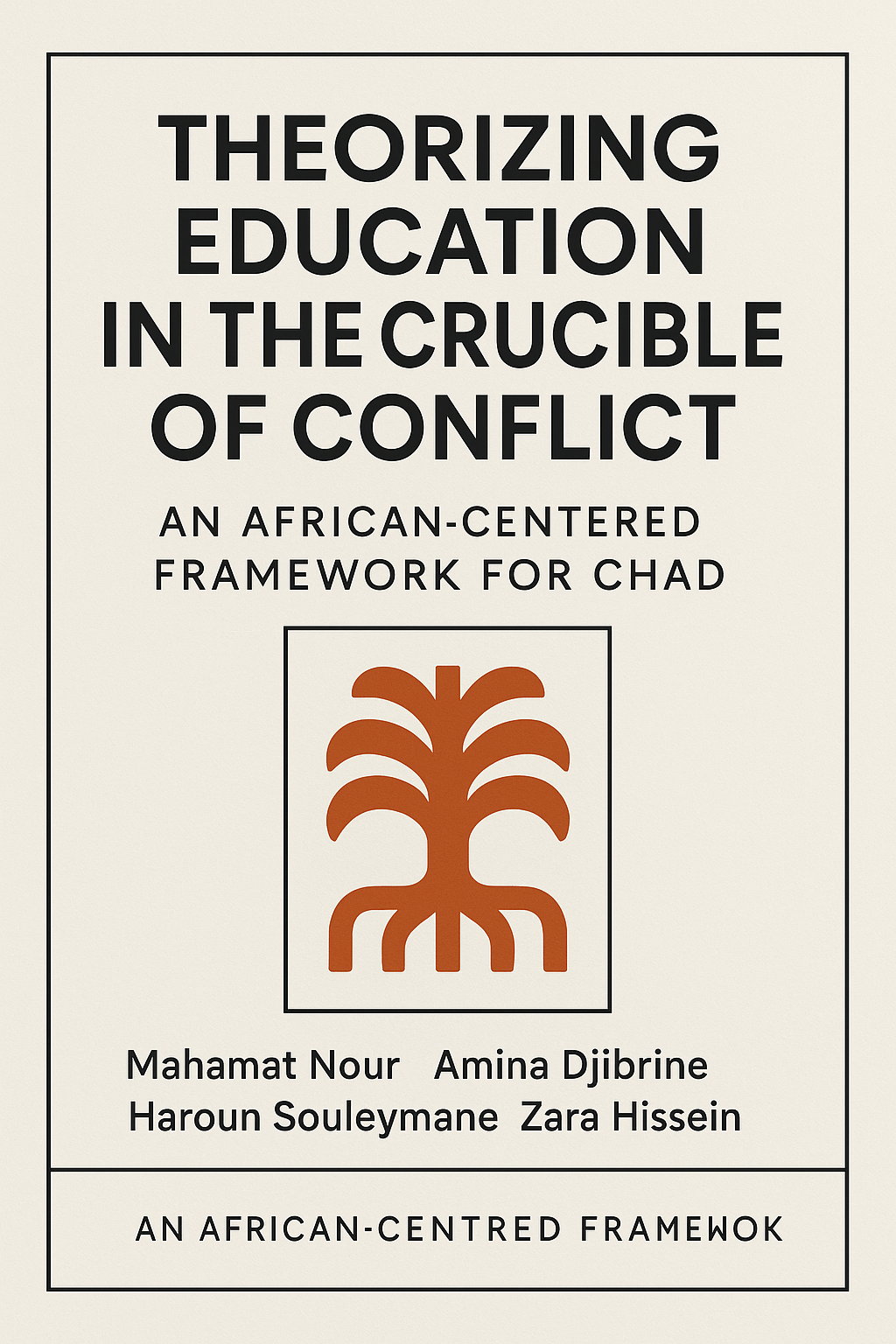A Theorisation of Education in the Crucible of Conflict
An African-Centered Framework for Chad
Keywords:
African-Centered Education, Conflict-Affected Education, Chad, Decolonial Theory, Educational Resilience, SahelAbstract
This theoretical article confronts the persistent failure of Western-centric educational models in conflict-affected Chad, where schools are often sites of cultural alienation rather than resilience. The central problem is the lack of a contextually relevant framework that conceptualizes education not as a neutral service disrupted by war, but as a deeply embedded sociocultural institution whose form and function are reconfigured by protracted violence. The methodology involves a critical synthesis of African-centered epistemologies, notably Ubuntu philosophy, and endogenous Chadian knowledge systems, to construct a novel theoretical lens. The core argument posits that an African-centered framework must recenter education on the ontological principles of interconnectedness, collective memory, and communal responsibility. This reorientation challenges the prevailing deficit narratives, reframing education as a potential crucible for healing and cultural continuity. The framework posits that effective education in this context must integrate trauma-informed pedagogies with the cultivation of historical consciousness and skills for peaceful coexistence, all grounded in local linguistic and cultural contexts. The significance of this theoretical intervention is its provision of an analytical tool for policymakers and educators to decolonize educational planning and practice. It implies a fundamental shift from importing external models to fostering an education system that draws its strength and purpose from Chadian realities, thereby contributing to sustainable peacebuilding from within.

Downloads
Published
Issue
Section
License
Copyright (c) 2024 Pan African Journal of Education & Social Development

This work is licensed under a Creative Commons Attribution 4.0 International License.
